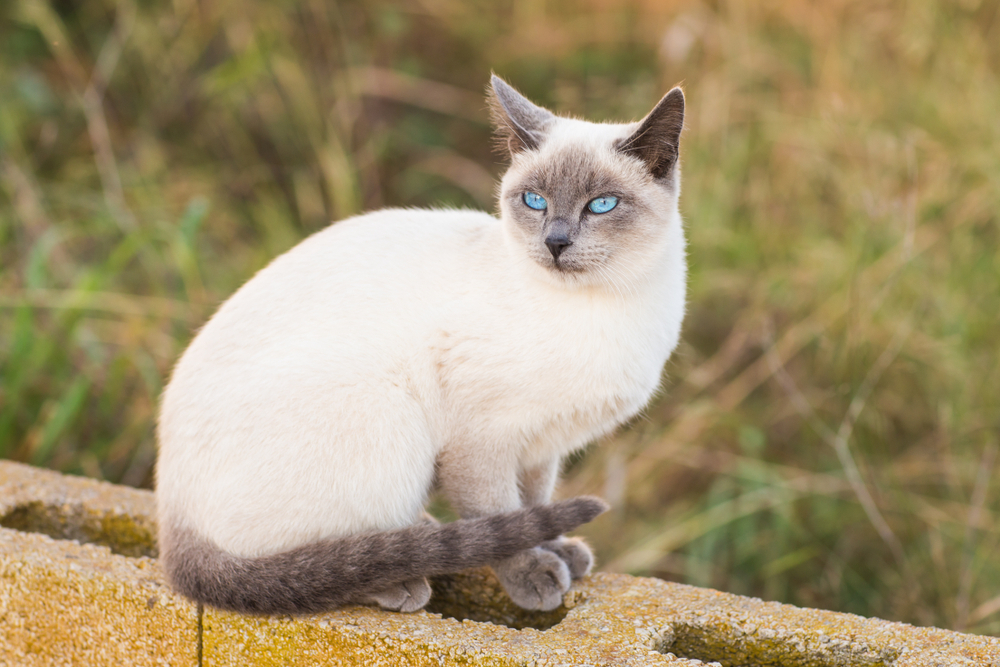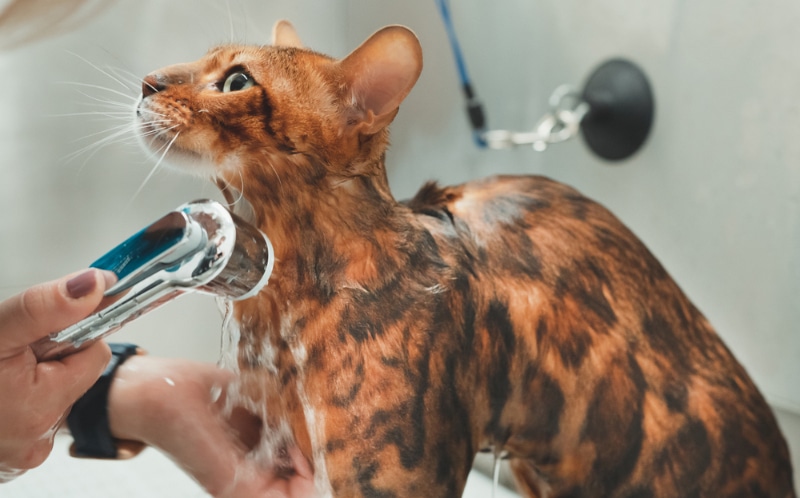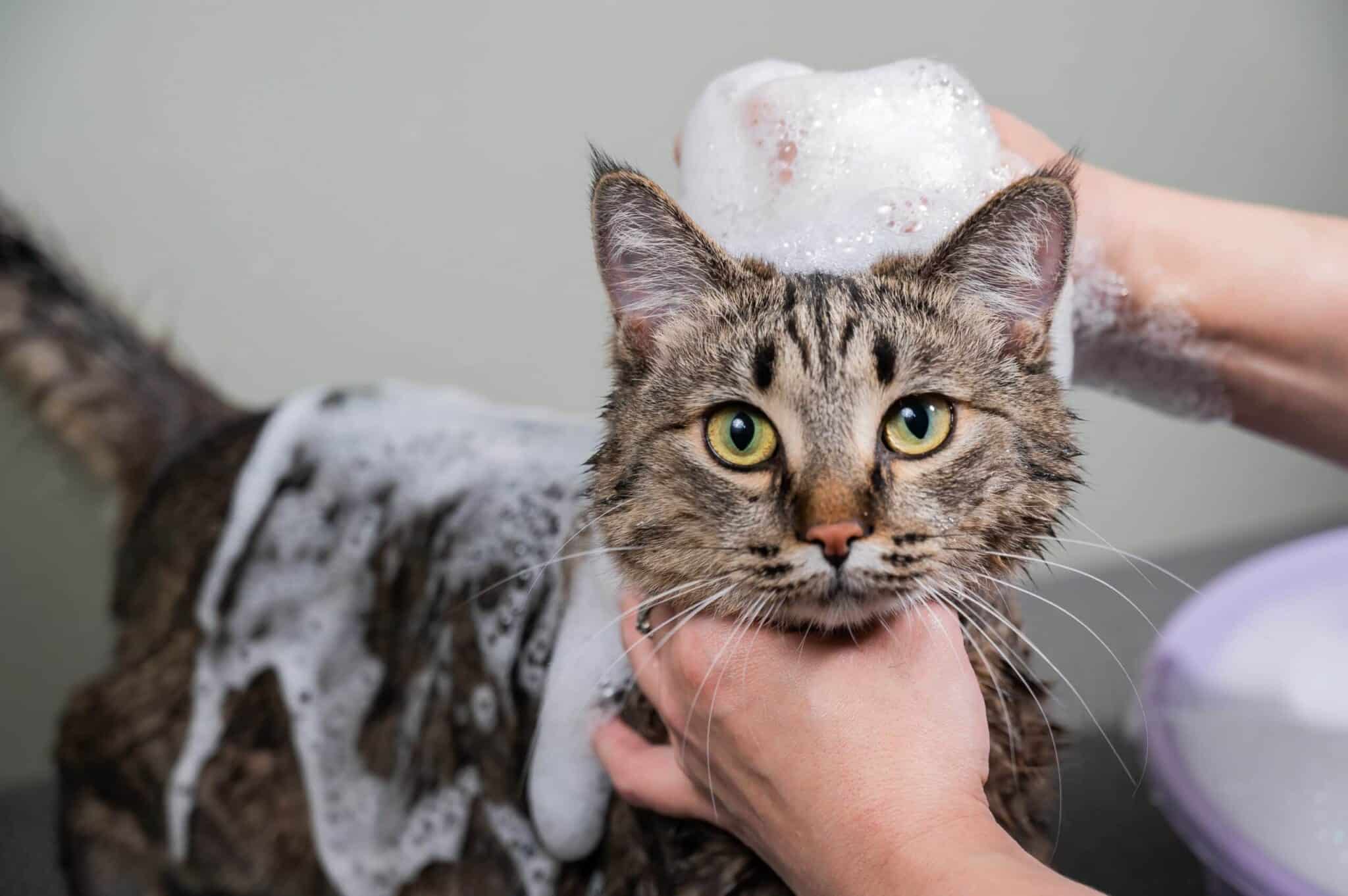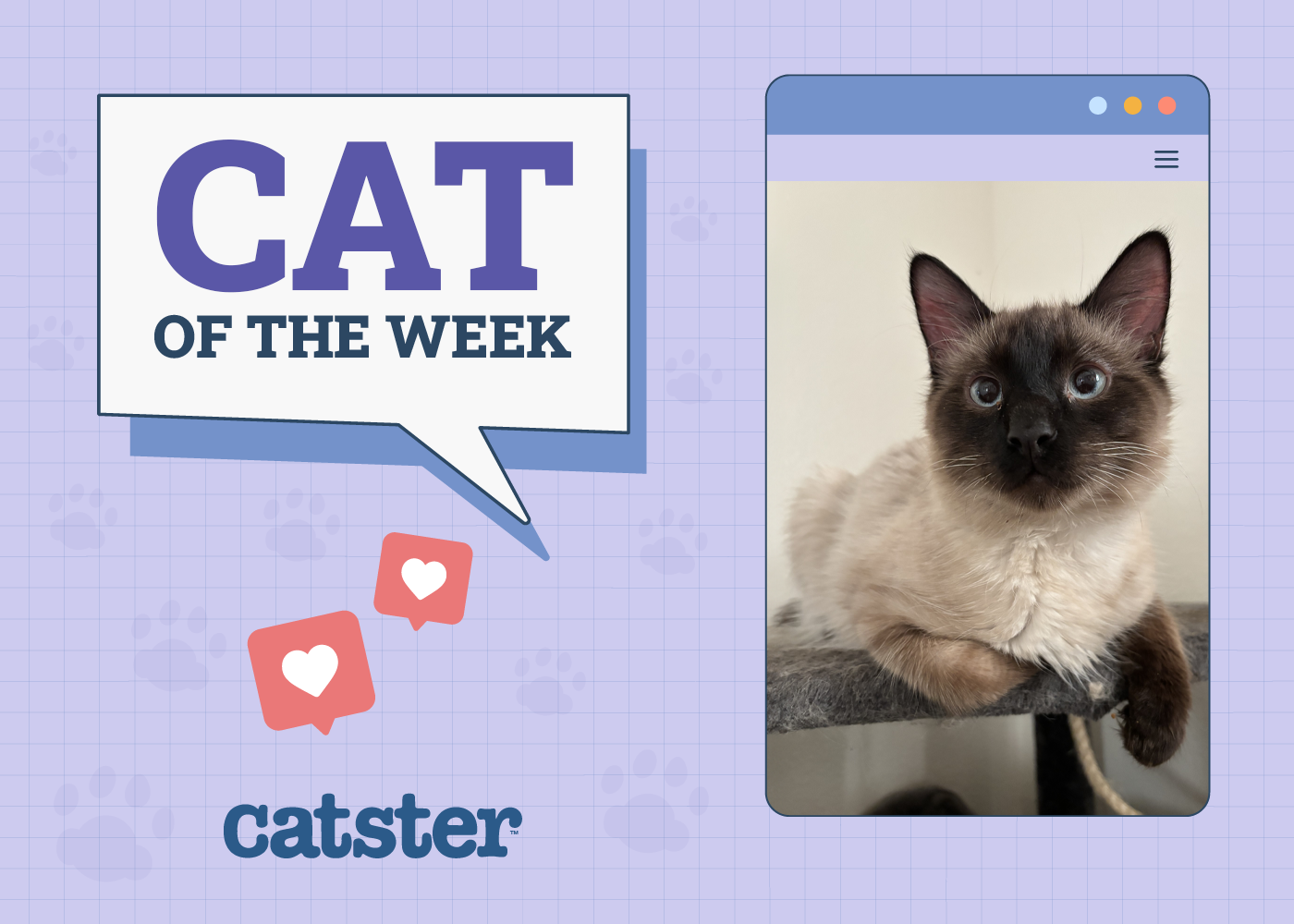Click to Skip Ahead
Sometimes, it seems that life likes to play cruel tricks on us. For example, many people love cats and desperately want to own one, but they’re highly allergic to felines! However, adopting a hypoallergenic cat may be the answer. Siamese cats are some of the most popular and well-known felines.
They’re highly regarded, and some US presidents have owned Siamese cats. But what about the poor allergy sufferer who loves the sophisticated Siamese cat? Are Siamese cats hypoallergenic? Well, they may be in luck, as Siamese cats are considered to be hypoallergenic. But the truth is, no cat is truly hypoallergenic. So, are Siamese cats a good choice for those with cat allergies? Let’s take a closer look at Siamese cat allergies and find out.

What are Hypoallergenic Cats?
For a long time, many people thought that hypoallergenic pets wouldn’t affect their allergies, but that isn’t entirely true. There are no truly hypoallergenic cats or dogs.1 Still, some cats have less of an effect on your allergies than others.
About 10% of the population is allergic to cats. Though some people think it’s the cat hair they’re allergic to, in truth, they’re allergic to an allergen that’s contained in feline saliva. This allergen is called Fel d 1,2 and all cats produce it, which is why no cat is 100% hypoallergenic. However, some cat breeds release less of the allergen.

Do Siamese Cats Affect Allergies?

Unfortunately, Siamese cats are not one of the breeds that release less of the Fel d 1 allergen. However, they are known for shedding only a minimal amount. This is how they’ve achieved their status as a “hypoallergenic” breed. When cats groom themselves, they leave the Fel d 1 allergen on their fur. As they shed, the allergen is released into your home. Since Siamese cats don’t shed much, they won’t have as pronounced an effect on your allergies as many other cats.
In reality, how much a Siamese cat affects your allergies will come down to your sensitivity. For those who are sensitive to the Fel d 1 allergen, no cat is going to be a good pet. It doesn’t take much exposure to create an allergic reaction. If you’re only slightly allergic to cats, the Siamese is likelier to be a good fit for you than others.

How to Deal with Cat Allergies
Let’s assume you have a slight cat allergy, but you absolutely must have a Siamese cat for a pet. Some precautions can be taken to help reduce the amount that you’ll suffer. First, you can take your cat to get groomed by someone who isn’t allergic. Grooming your cat can release the Fel d 1 allergen from their fur, exposing you to a heavy dose.
Likewise, grooming your cat outside of your home can ensure that less of the allergen is present where you live. Regular bathing can also reduce the allergens released by your cat. Make sure not to touch your face after petting your cat; it can be an easy way to introduce the allergen directly into your system.
Vacuuming daily can also reduce the number of allergens within your home. Air purifiers can even remove allergens from the air, and remember to wash all your linens and clothes regularly to avoid the buildup of Fel d 1.

Age, Sex, and Allergies
Some of your cat’s characteristics can also affect how much of the Fel d 1 allergen they release, aside from their breed. For example, kittens release far fewer allergens than adult cats. Often, this leads people to mistakenly believe that they’ve suddenly developed an allergy to a cat that’s been living in their household for some time.
In truth, it’s just that the kitten didn’t release enough allergens to incite a reaction, but as the cat ages, the allergens increase, and so do your reactions. Another factor that can impact the amount your cat affects your allergies is sex.
Female felines release less of the Fel d 1 allergen than males do. Those who suffer slightly from allergies might do better with a female cat.

It should be noted that female and male cats have markedly different personalities. If you prefer a male cat, you’re not entirely out of luck. Neutering a male cat early can reduce the amount of Fel d 1 they release.
Also, cats with darker coats possess more Fel d 1 than lighter-colored cats do. You can adopt a light-colored female cat that doesn’t shed much, such as a Siamese. While this cat would still affect someone with an extreme allergy to cats, it would probably be an acceptable choice for someone whose allergies aren’t quite as severe.

Conclusion
It might be disappointing to hear, but no cat is truly hypoallergenic. However, certain traits can cause particular breeds to have a reduced effect on allergies. Siamese cats are one of the breeds, and they’re often considered to be hypoallergenic. While they still release Fel d 1, Siamese cats don’t shed much, so they should have less of an effect on someone who suffers from cat allergies, particularly if their allergies aren’t severe.
- See also: Siamese Cat Genetics
Featured Image Credit: Tatiana Chekryzhova, Shutterstock










